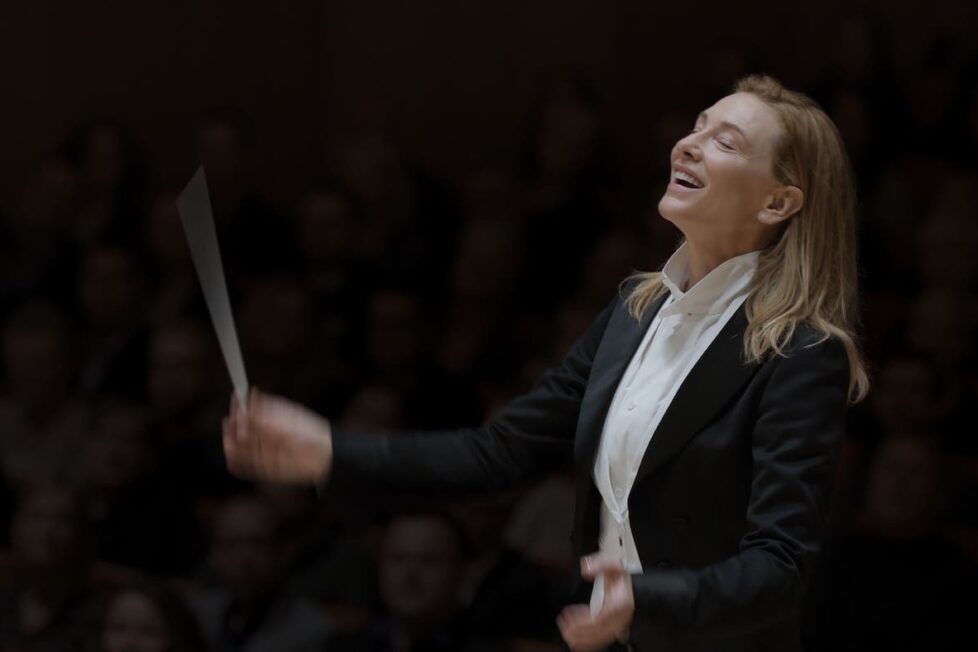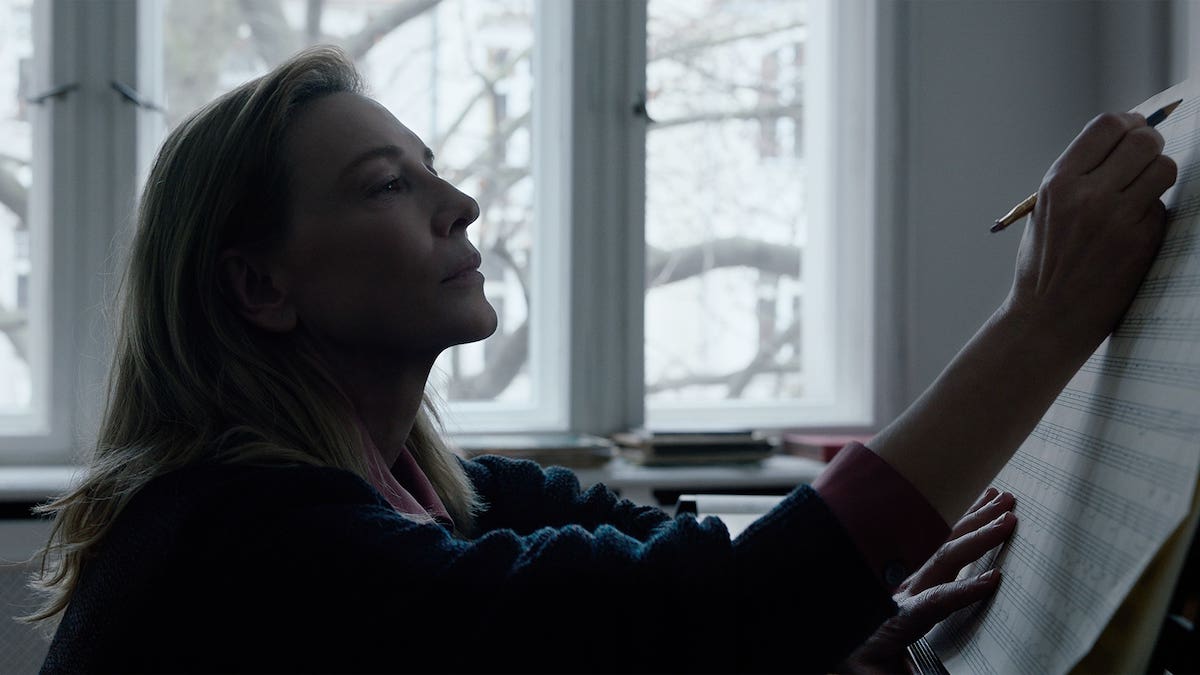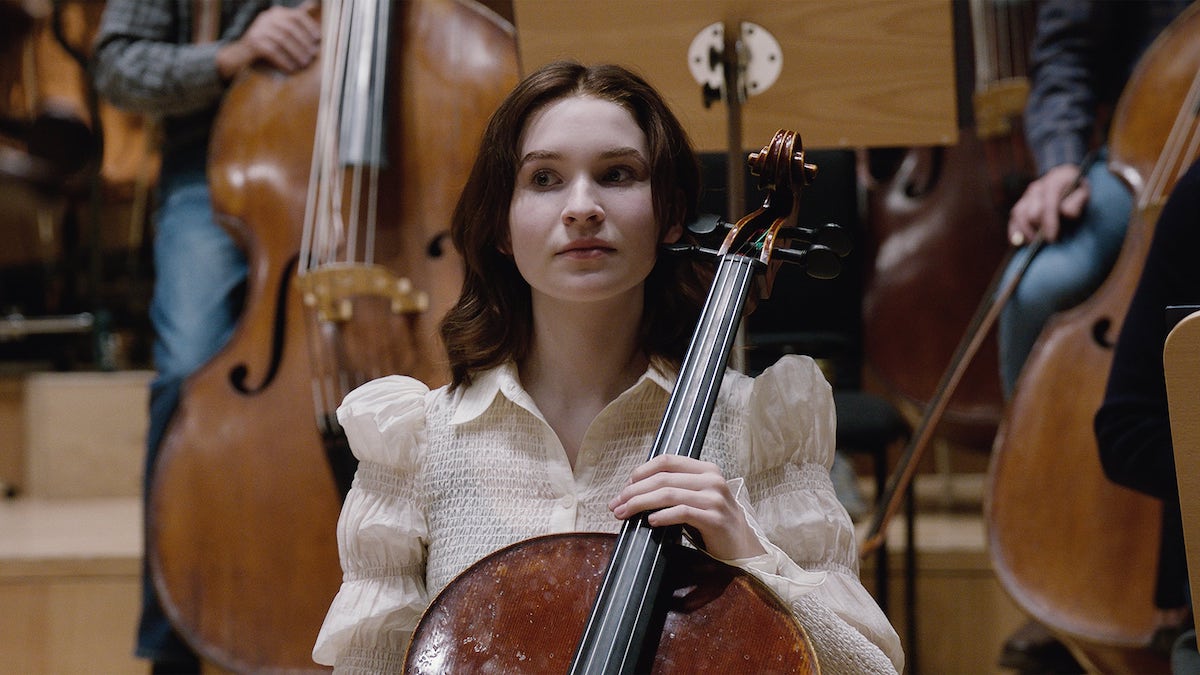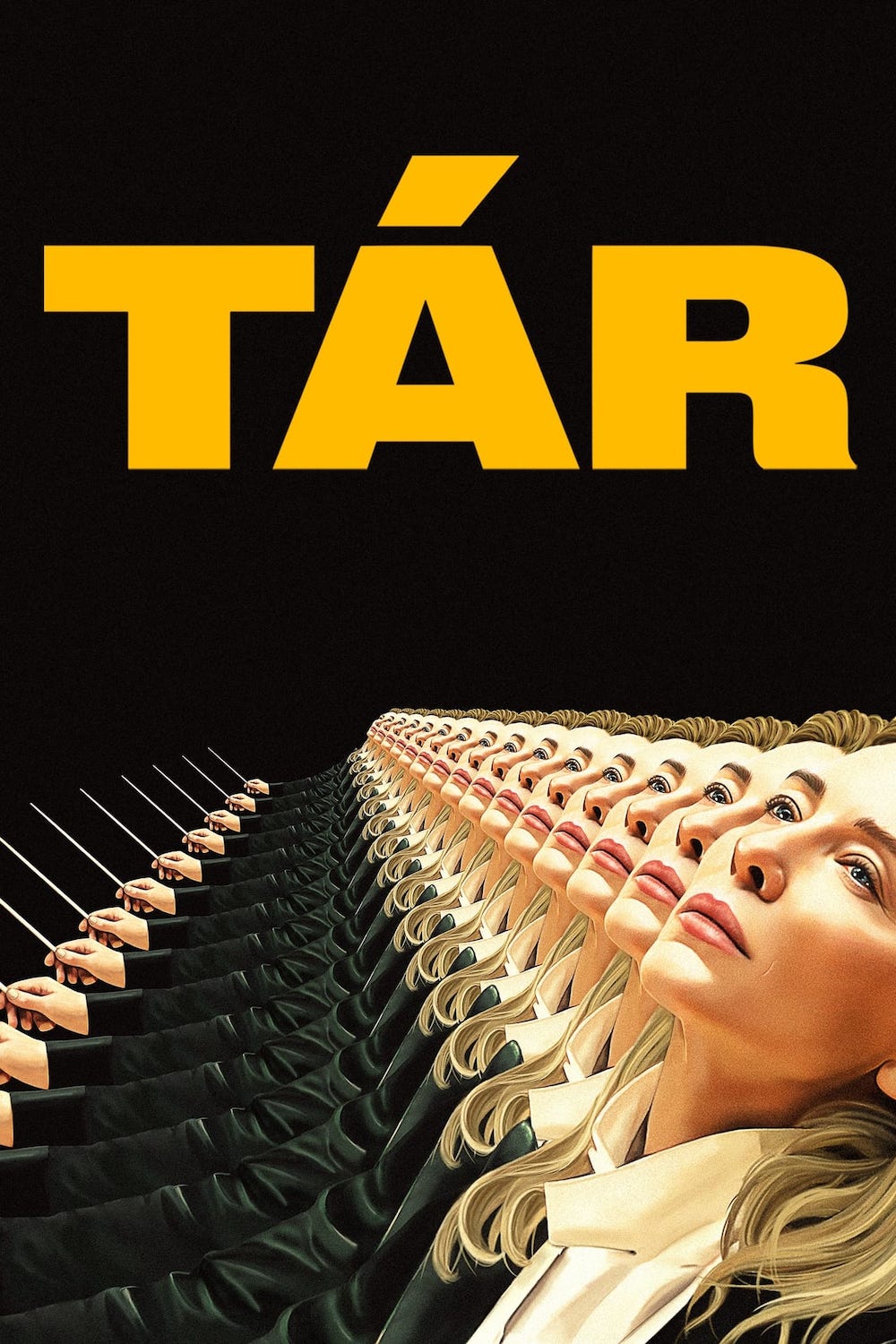TÁR (2022)
Lydia Tár is days away from recording the symphony that will elevate her career, but her elaborate facade begins to unravel, revealing dirty secrets and the corrosive nature of power.

Lydia Tár is days away from recording the symphony that will elevate her career, but her elaborate facade begins to unravel, revealing dirty secrets and the corrosive nature of power.


Tár marks the return to the big screen for director Todd Field after 16 years away, and what a return it is. After breaking onto the scene with the critically and commercially successful In the Bedroom (2001), before following it up with the not-quite-as well-received but still admired Little Children (2006), Field established a unique lane for himself as one of the industry’s premier directors of psychological dramas, especially in the realm of US suburbia.
Field again taps into our collective psyches with this psychological drama, bordering on horror, but this time in the upscale world of American and European musicians, composers, and conductors.
Lydia Tár (Cate Blanchett) is a world-renowned EGOT-winning composer and the first woman to be the chief conductor for a major German orchestra, the Berlin Philharmonic, one of the most celebrated orchestras in the world. She is, undoubtedly, on top of her game. We’re introduced to Lydia as she’s being interviewed on stage by real-life New Yorker staff writer Adam Gopnik, and she comes across as alluring, intelligent, curious, provocative, and vexing in their back-and-forth. In other words, a typical genius artist.

Tár has a fill-in-the-blanks-as-you-go story, with Field sprinkling in bits and pieces of information about Lydia, her past, and her true self. It’s a genuinely thorough character portrait and Blanchett is, like Lydia, at the height of her powers throughout. Having already won two Academy Awards for ‘Best Supporting Actress’ for The Aviator (2004) and ‘Best Actress’ for Blue Jasmine (2013), as well as earning five other nominations, Blanchett turns in what may be her best performance yet. Lydia is a truly fascinating character, and Blanchett plays her with full bombast from the peaks to the lows.
As hinted at by the previous section, Tár follows Lydia from the apex of her career, through a devastatingly brutal unravelling that’s mostly due to her own actions. And Blanchett brings you fully along for the emotional journey. The rest of the cast are satellites around such a titanic performance, but each is a crucial role played with committed results—most notably Nina Hoss as Lydia’s wife and concertmaster Sharon and Noemie Merlant as her assistant Francesca.
As the difficulties begin piling up and the obstacles become seemingly too much to overcome, questions continue to fill the viewer’s head. Is Lydia’s unravelling solely due to her succumbing to hysteria and paranoia? Is there something else more sinister going on? Can this get any worse for her?

I’ll tread lightly due to potential spoilers, but know that not everything we see from Lydia’s point of view is to be believed. Field sprinkles in hints here and there that she’s not merely an iconoclast, but someone actually committing harmful acts. All will be revealed in time.
This leads to some of the film’s thornier, more prescient themes—including the abuse of power, cancel culture, punishment for wrongdoing, separating art from the artist, and more. The film is a lightning rod; a full-picture distillation of the last decade of conversations people have had across Hollywood, social media, and the world.
Field presents these themes with the correct amount of balance. They’re there to service the story, not vice versa. Things are refreshingly complicated. There is no hand-holding in this movie. To a certain type of 21st-century viewer, this could be viewed as a problem, but make no mistake, Field comes down on Lydia with such fierce on-screen punishment that his views on the protagonist are far from unknown. It’s a captivating portrait of a complex figure that delves into discussion-worthy topics. It’s the exact type of film we need more of.
USA | 2022 | 158 MINUTES | 2.39:1 | COLOUR | ENGLISH • GERMAN • FILIPINO • FRENCH


writer & director: Todd Field.
starring: Cate Blanchett, Noémie Merlant, Nina Hoss, Sophie Kauer, Julian Glover, Allan Corduner & Mark Strong.
